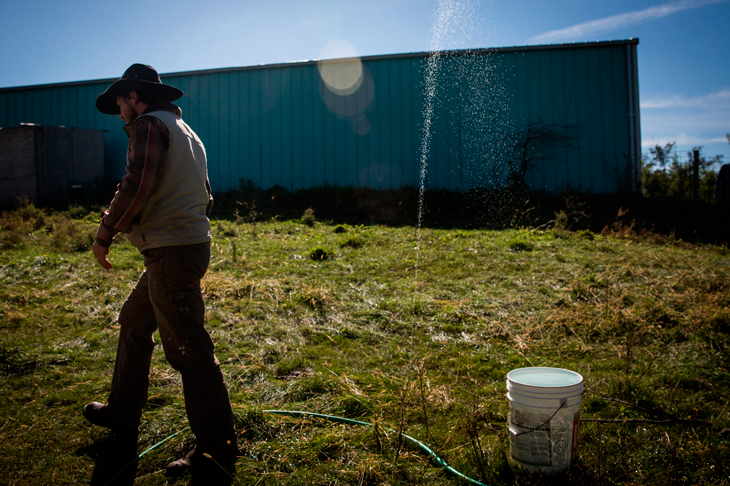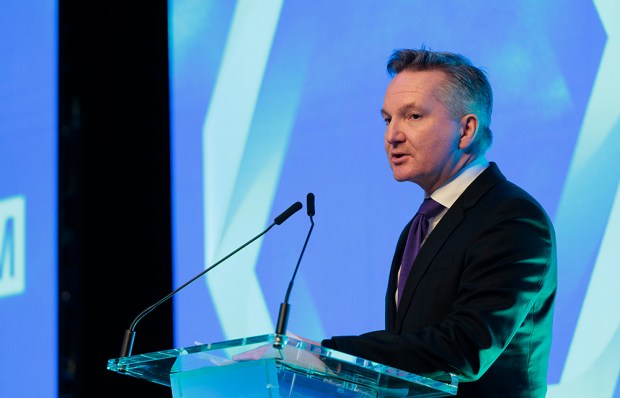Whacko! American farmers have now joined the Australian economy in being seriously at risk of collateral damage from ‘friendly fire’ in Donald Trump’s trade war with China. Sharing the pain means we could end up getting the benefit of President Trump having to change his mind and join our reviving Trans Pacific Partnership. In scrambling to try to protect his mid-west electoral heartland from threatened Chinese well-directed retaliatory tariffs, Trump has suddenly discovered how attractive is the TPP that he jilted last year, reneging on the Obama administration’s signed engagement. In implementing his election campaign promise to quit Obama’s ‘anti-American’ TPP that would ‘kill American jobs’, he spurned strong representations from Australia that focussed heavily on its strategic, as well as trade, benefits. Now, just a month after the remaining 11 members (Australia, Canada, Chile, Japan, Malaysia, Mexico, NZ, Peru and others) signed their US-excluded version of this tariff-cutting deal, Trump is undertaking a monumental (but welcome) back-flip.
As a direct consequence of his tariff confrontation with China, he told a gathering of worried US farm-state legislators and governors that he had instructed his economic adviser Kudlow and trade negotiator Lighthizer to examine the feasibility of the US re-entering the TPP. Trump’s face-saving rationalisation that he must get a better deal for the US than Obama’s, faces the problem that, as he may now need the TPP more than it needs him, a meaningful better deal is unlikely. Beyond some cosmetic US-favouring clauses that could meet his domestic political requirements, the Pacific Ocean’s Eleven would even be reluctant to restore the original oppressive US-demanded clauses on supra-national disputes resolution, government purchasing and extended patents that have been suspended from the current agreement. If attracting the remaining ‘interested’ free-market Pacific powers (South Korea, Philippines, etc.) into the TPP to counter China’s regional dominance is the policy objective, this will limit the US’s capacity to demand more favourable treatment for itself at their expense.
Trump’s China adventure has altered the political environment of the 2016 presidential election where the unanimous populist stance from Trump, Clinton and Sanders was to condemn the TPP. The Left remain bitter opponents; Obama received more support from Republican legislators than Democrats, particularly from Wisconsin’s Paul Ryan, who is said to have ‘worked, almost single-handedly and quite stealthily, to build support to give Obama additional authority to negotiate this massive trade deal’. Obama’s view of the TPP, which, with the US in it, accounted for 40 per cent of global GDP and one-third of world trade, was that: ‘If we don’t pass this agreement, if America doesn’t write these trade rules, then countries like China will’. The Cato Institute warned that US absence from the TPP ‘would do more to subvert US regional and global interests than anything China is capable of doing’, while the Congressional Research Service warned that TPP failure would be seen in Asia as ‘a symbol of declining US interest in the region and an inability to exert leadership, allowing China to shape regional rules on commerce and diplomacy’.
There is irony in the timing of Trump’s back-flip, just one day after the TPP’s greatest republican supporter, Speaker Paul Ryan, third in the US order of precedence after the President and Vice-President, announced he would retire next January following November’s mid-term elections. A crucial element of the government, Ryan has had an uncomfortable relationship with the President, with Ryan’s deeply conservative principles being repeatedly at odds with Trump. A long meeting between the two in January prompted the Washington Post to wonder whether Ryan ‘Will get on board or step out of the way’. Tariffs may have been the final straw; Ryan was ‘extremely worried about the consequences’ of Trumps proposed tariffs and 106 of his colleagues publicly called on the President to change his approach. Ryan says he is leaving politics for family reasons; he does not want to be known to his children as ‘only a weekend dad’. But the White House has family accommodation and at only 48 Ryan has plenty of time.
Got something to add? Join the discussion and comment below.
Get 10 issues for just $10
Subscribe to The Spectator Australia today for the next 10 magazine issues, plus full online access, for just $10.
You might disagree with half of it, but you’ll enjoy reading all of it. Try your first month for free, then just $2 a week for the remainder of your first year.














Comments
Don't miss out
Join the conversation with other Spectator Australia readers. Subscribe to leave a comment.
SUBSCRIBEAlready a subscriber? Log in